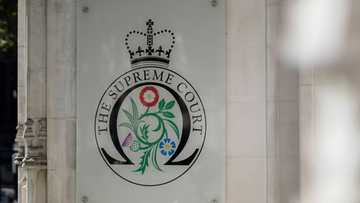
Photo: Tolga Akmen / AFP
Source: AFP
British finance firms behind high interest car loans could have to pay out more than nine billion pounds ($12 billion) in compensation despite the country’s highest court ruling that most of the controversial deals were lawful, a financial watchdog said Sunday.
The Supreme Court on Friday partially overturned judgments that the loans were unlawful, giving relief to banks which had been bracing for compensation claims from millions of car-buyers.
It did, however, uphold one of the three cases, which allows the claimant to seek compensation.
And in a similar but separate probe, the Financial Conduct Authority (FCA) said that the cost of any redress scheme relating to discretionary commission arrangements for car loans would likely be higher than £9 billion.
“While there are plausible scenarios which underpin estimates of a total cost as high as £18 billion, we do not consider those scenarios to be the most likely and analyst estimates in the midpoint of this range are more plausible,” the FCA said in a statement.
The FCA estimates that most individuals will probably receive less than £950 in compensation.
The court ruling had given the FCA “clarity… because we have been looking at what is unfair and, prior to this judgment, there were different interpretations of the law coming from different courts,” it said.
“It is clear that some firms have broken the law and our rules. It’s fair for their customers to be compensated,” said Nikhil Rathi, chief executive of the FCA.
The Supreme Court decision mostly overturned Court of Appeal rulings last year that it was unlawful for car dealers to receive a commission on loans without sufficiently informing borrowers.
In some cases, the loans — available from 2007 — allowed car dealers to offer higher interest rates in return for a bigger commission from banks.
The ruling means that dealers have some leeway when arranging loans, without requiring explicit consent from borrowers for terms that may benefit lenders.
The case that was upheld involved Marcus Johnson, who in 2017 bought a Suzuki Swift from a car dealer in Cardiff for £6,500 including loan costs — unaware that interest on the loan amount would fund a commission of more than £1,600.
When the Court of Appeal ruled in favour of Johnson, ordering FirstRand Bank, a South African based lender, to refund the commission plus interest, it sparked panic across the finance sector.
That ruling was upheld by the top court due to the high level of commission Johnson was charged and the complexity of the contract setting out the fee, which limits the scope of other compensation claims.
HSBC bank analysts had suggested before the trial that the total cost to the banking sector could have reached £44 billion.
Source: AFP
Source: Yen.com.gh












